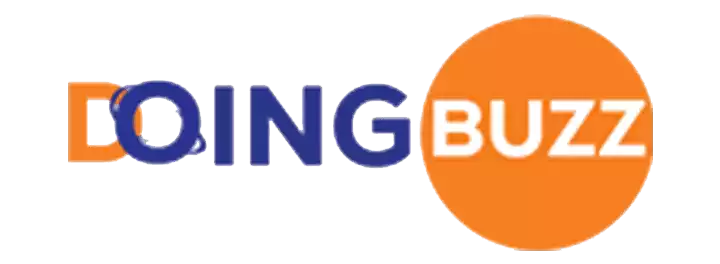IFRC recruits 01 Community Engagement and Accountability Delegate
Community Engagement and Accountability Delegate
Strong candidate identified
Closing date (Geneva time zone):04-07-2019
Duty station:Democratic Republic of Congo
Country:CONGO, THE DEMOCRATIC REPUBLIC OF THE
Duty station status: Non Family Duty Station
Accompanied status: Non-Accompanied
Duration:2,6 months
Category of Staff: Delegate
Grade: C1
Vacancy No:IFRC03163
Background
The International Federation of Red Cross and Red Crescent Societies (IFRC) is the world’s largest humanitarian organization, with 190 member National Societies. As part of the International Red Cross and Red Crescent Movement, our work is guided by seven fundamental principles; humanity, impartiality, neutrality, independence, voluntary service, unity and universality.
Organizational Context
The International Federation of Red Cross and Red Crescent Societies (IFRC or “the Federation”) is the World’s largest volunteer-based humanitarian network. The Federation is a membership organization established by and comprised of its member National Red Cross and Red Crescent Societies. Along with National Societies and the International Committee of the Red Cross (ICRC), the Federation is part of the International Red Cross and Red Crescent Movement. The overall aim of the IFRC is “to inspire, encourage, facilitate, and promote at all times all forms of humanitarian activities by National Societies with a view to preventing and alleviating human suffering and thereby contributing to the maintenance and promotion of human dignity and peace in the world.” It works to meet the needs and improve the lives of vulnerable people before, during and after disasters, health emergencies and other crises. The Federation is served by a Secretariat based in Geneva, with regional and country offices throughout the world. The Secretariat is led by the IFRC Secretary General and provides the central capacity of the International Federation to serve, connect, and represent National Societies. Ebola is endemic to the Democratic Republic of the Congo (DRC). In May 2018, the DRC Ministry of Health (MoH) officially declared the 9th epidemic of the Ebola virus disease (EVD) in Equateur province. This was the ninth Ebola outbreak in the country, and the first in the province. The humanitarian community, including the Red Cross and Red Cross Crescent partners, quickly mobilized resources to face this new EVD outbreak and on 25 July the outbreak was officially declared over. This epidemic caused a total of 33 deaths for 54 cases reported (38 confirmed and 16 probable) in three affected health zones of Wangata (Mbandaka), Bikoro and Itipo. One of the key Red Cross response during the active outbreak phase was SDBs. Over 100 RC volunteers were trained in SDB and teams responded to over 80 SDB alerts. On the 1st August the MoH officially declared a new EVD outbreak in Mabalako Health Zone, Beni territory. Following an alert from the North Kivu Provincial Health authority about a cluster of cases in Mangina end of July 2018, four samples out of six tested positive for EVD. On 6 August 2018, the Institut National de Recherche Biomédicale (INRB) confirmed by genetic sequencing that this latest outbreak is caused by the Zaire ebolavirus species and is not connected to the recent outbreak in Equateur Province. As of 26 April 2019, a total of 1,396 EVD cases have been reported in the region, 1,330 of which have been confirmed and 66 which are probable. Confirmed or probable cases are localized to five health zones in North Kivu, and one neighboring health zone in Ituri Province.
Job Purpose
Community engagement and accountability
Community engagement and accountability (CEA) is an approach to Red Cross and Red Crescent programming and operations. It is supported by a set of activities that help put communities at the centre of what we do, by integrating communication and participation throughout the programme cycle or operation. CEA is the process of and commitment to providing timely, relevant and actionable life-saving and life-enhancing information to communities. It is about using the most appropriate communication approaches to listen to communities’ needs, feedback and complaints, ensuring they can actively participate and guide Red Cross Red Crescent actions. CEA supports those involved in programmes and operations to adopt innovative approaches to better understand and engage with people and communities and help them address unhealthy and unsafe practices. It maximizes the Red Cross Red Crescent’s unique relationship with the community to help them speak out about the issues that affect them and influence decision and policy-makers to implement positive changes. Within the IFRC, there is global leadership for CEA at the Geneva level, with a Senior Advisor present in the Africa Regional Office.
The CEA Delegate will be responsible for driving the development, implementation, supervision, and evaluation of CEA activities for the Ebola response in DRC, along with ensuring CEA is built into National Society (NS) and IFRC ways of working for this emergency operation and recovery activities.
The position will provide strategic and technical advice, supervision, and training to improve communication with and accountability to communities affected by the current EVD outbreak, and to build the capacity of NS in CEA during outbreaks and during the recovery phase. This will include supporting and promoting the use of innovative approaches to information sharing, community participation and feedback, behaviour and social change communication and evidence-based advocacy.
Job Duties and Responsibilities
CEA for emergency response
Ongoing assessment and adaptation of approaches to meet community engagement and risk communications needs in affected areas, including coordinating with other actors in the community engagement and communication space
In collaboration with the different actors in the operational areas, prioritise the most impactful and trusted channels to reach out and engage the targeted population
Develop a risk communication and community engagement strategy in coordination with the NS and the technical team.
Assist with setting up a system for of assessing, quantifying and continuously monitoring local beliefs, perceptions, feedback and rumours to inform community engagement approaches and priority messages for volunteers’ community work
Coordinate, supervise and guide the Red Cross risk communication and community engagement work in the main locations, including coordinating with government and partners as part of the risk communication and community engagement pillar of the Ebola response
Ensure Safe and Dignified Burial (SDB) teams are equipped with effective community entry, community/family engagement and negotiation approaches and tools to improve acceptance of SDB activities and reduce risks for volunteer teams;
Support the National Society and the existing programs in their community engagement and social mobilization activities.
Build the capacity of NS and its branch to integrate community engagement and risk communication into the operation
Work closely with DRC-RC staff and volunteers to help them identify gaps in their approach to CEA and then supporting them to address these by integrating and/or scaling up an appropriate mix of approaches and activities to communicating and engaging with people and communities affected by the current EVD epidemic.
Support other operational pillars to respond to CEA needs arising in the course of their work
CEA development and capacity building
Plan and deliver CEA trainings to IFRC and NS staff and volunteers and for the various networks and working groups they support, providing staff and volunteers with the tools to carry out CEA activities supporting the above goals.
Support the rolling out and adaptation of CEA Movement tools, methodologies and activities, as defined in the CEA Movement guide and toolkit, to support response and recovery programmes and operations.
Coordination, representation, relationships and reporting
Attend and represent the IFRC at external coordination networks and mechanisms, such as the EVD response communication commission, and ensure a coordinated approach to CEA with other NGOs, humanitarian agencies, UN and private sector.
Identify opportunities for partnership with external organisations, including the use of technology and innovative approaches to enhance CEA within NS and IFRC programmes and operations.
Education
An advanced university degree (Master’s degree) in Communication or Social/Behavioural Sciences (i.e. Sociology, Anthropology, Psychology or Health Education) or relevant experience.
Experience
Experience planning and delivering community engagement approaches, beneficiary communication, communication for development or accountability to communities during emergencies and/or situations of violence
Experience working for humanitarian or development organisations, within the context of developing countries
Experience setting up and managing tools for communicating with communities. For example, radio programmes, TV shows, SMS systems, community committees, social mobilisation or mobile cinemas and community dramas etc
Proven experience in planning targeted and appropriate behaviour change communication strategies.
Experience of coaching, training and developing local staff and volunteers in order to build long-term capacity and create ownership
Experience working with Red Cross and Red Crescent National Societies
Knowledge, skills and languages
Excellent project management skills, able to work under pressure and manage multiple workstreams simultaneously, to a high standard and to deadline
Advanced analytical skills, able to capture learning and use it to make improvements in programming and operations
Highly motivated, self-starter able to take initiative and lead a team or process
Good knowledge of Red Cross Red Crescent Movement
Good knowledge of gender and diversity issues in humanitarian programming
Fluent spoken and written English
Fluent spoken and written French
Fluent spoken and written Swahili
Competencies and values
Professionalism
Communications
Collaboration and teamwork
National Society and customer relations
Building alliances
Accountability
Creativity and innovation
Comments
Duration: 2,6 months (with extension possibility)
The Federation is an equal opportunity employer.
Lancez-vous dans une nouvelle aventure avec DoingBuzz
Découvrez une multitude d'offres d'emploi et de bourses d'études adaptées à votre parcours.
doingbuzz DIRECT
Newsletter
Abonnez-vous et accédez à tous nos articles en premier !














